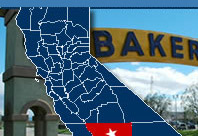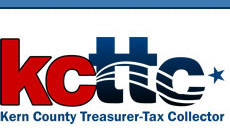On July 1, 1983, California State law was changed to require the reassessment of property following a change of ownership or the completion of new construction. This reassessment may result in one or more supplemental tax bills being mailed to the assessed owner, in addition to the annual property tax bill. This page focuses on the supplemental tax bills generated by such reassessments of property values.
|
|
|
| What is meant by new construction or change of ownership? |
New construction could include any addition to the real property (such as a new building, or adding a new room, pool or garage), or any substantial alteration to an existing structure.
Most changes in ownership caused by the sale of property result in reassessment. However, the transfer, sale or inheritance of property between parents and their children, and the addition of joint tenants may not result in the reappraisal of property values. Parent/child transfers require an exclusion filing within a limited period.
Homeowners over the age of 55 years who sell their principal residence and purchase a replacement dwelling within two years that is of equal or lesser market value, and is located within the same county, MAY be eligible to transfer the pre-sale assessed value of their original property to the replacement dwelling.
For claim forms or further information regarding assessment issues, please contact the Assessor by phone at (661) 868-3485 or visit their web site at https://www.kerncounty.com/assessor-recorder.
|
|
| What happens when the Assessor reassesses my property? |
The Assessor first determines the new value of the property, based on current market values. The Assessor then calculates the difference between the new value (set at the time of purchase or completion of new construction) and the old value. This results in the supplemental assessment value. Once the new assessed value of your property has been determined, the Assessor will send you a Notice of Supplemental Assessment.
Example:
New value at date of purchase or completion of new construction $220,000
Assessed value for current fiscal year $200,000
Supplemental assessment value (New Value - Assessed Value) $20,000
This reassessment usually results in an increase in property value. Your supplemental taxes will be calculated based on the difference in values. As a result, one or more supplemental tax bills will be issued. If the reassessment results in a reduction in value, a refund will be issued by the Auditor-Controller's Office. A reduction in value will not reduce the amount due on the annual tax bill. The annual tax bill must be paid in the amount originally billed.
|
|
| Do I have the same right to appeal the Assessor's supplemental assessed value as I do the annual assessed value? |
If a property owner has discussed his assessment with the Assessor's office and still feels that his property is over-assessed, he or she may file a formal assessment appeal. Appeals on regular assessments must be filed between July 2 and November 30. Appeals on supplemental assessments must be filed within 60 days of the date of the Supplemental Assessment Notice.
An independent Assessment Appeals Board has been established to hear these differences in opinion on values. The Board is composed of private citizens appointed by the County Board of Supervisors. They consider all evidence presented by the property owner and the Assessor at a formal hearing. The Appeals Board then determines the value of the property in question. If the Board orders a decline in value, this reduction applies only to the tax bill for the year in which the application was filed.
All appeals must be filed with the Clerk of the Board of Supervisors at the County Administration Building, 1115 Truxtun Ave, Bakersfield, California 93301.
Further information regarding the appeals process can be obtained by calling (661) 868-3485, or in writing to: Clerk of the Board, Attn: Assessment-Appeals Clerk 1115 Truxtun Ave 5th Floor, Bakersfield, CA 93301.
|
| |
| If I receive a supplemental tax bill, will I also receive an annual tax bill in November? |
| The supplemental tax bill is in addition to the annual tax bill. Both bills must be paid by their individual delinquent dates. |
| |
| If I pay my property taxes through an impound account, will my supplemental tax bill be sent to my lender? |
| Supplemental tax bills are mailed directly to you. It is your responsibility to contact your lender to determine who will pay the supplemental tax bill. Your lender will not receive this bill. |
| |
| If payment of the supplemental tax bill is not made on time because of a misunderstanding between my lender and myself, may I have the penalties excused? |
| The California Revenue and Taxation Code does not authorize the County Tax Collector to remove penalties in this situation. |
| |
| What if I purchase property and then sell it again after a few months? |
| If you purchase and sell property within a short period of time, the supplemental tax bill you receive should cover only those months during which you owned the property, and the new owner should receive a separate supplemental tax bill. You may not receive the supplemental tax bill until after you have sold the property. The type of supplemental tax bill you would receive in this instance would be unsecured at billing, and would have only one installment stub for payment. Check the dates used in prorating your bill, to ensure that the period covered is correct. If you believe your tax bill is incorrect, contact the Assessor's Office at (661) 868-3485. |
| |
| When I purchase property or complete construction during the fiscal year, will I be taxed on the supplemental value for the entire fiscal year? |
You are taxed on the supplemental value for the remaining portion of the year, from the date you purchased the property or completed the new construction. However, if the event was after January 1st, you will receive an additional supplemental tax bill for the following fiscal year, which will be for the entire year.
Figure 1 illustrates the homeowner's obligation to pay both supplemental and annual tax bills after purchasing property or completing new construction. (NOTE: The diagram assumes an increase in property value.)
| Figure 1. |
| If You Buy New Property OR Complete New Construction |
| |
| |
Between June 1 and December 31* You will be responsible for the following tax bills: |
| |
Your portion of the Annual Tax Bill ** for the current fiscal year, reflecting prior assessed value. |
| |
The Supplemental Tax Bill for the remainder of the current fiscal year, reflecting the difference between the new and prior assessed values. |
| |
The Annual Tax Bill ** for the upcoming fiscal year, reflecting the new assessed value. |
| |
| |
Between January 1 and May 31* You will be responsible for the following tax bills: |
| |
Your portion of the Annual Tax Bill ** for the current fiscal year, reflecting the prior assessed value. |
| |
The 1st Supplemental Tax Bill for the remainder of the current fiscal year, reflecting the difference between the new and prior assessed values. |
| |
Since the change in value occurred after the January 1 lien date and will not be reflected on the annual tax bill for the upcoming year, you will also receive: |
| |
The Annual Tax Bill ** for the upcoming fiscal year reflecting the value of the January 1 annual assessment. |
| |
The 2nd Supplemental Tax Bill for the entire upcoming fiscal year, reflecting the difference between the new and prior assessed values. |
| |
| REMEMBER: |
| * |
Taxes on the increase in assessed property value due to ownership changes or completion of new construction are calculated as of the first day of the month following the date of ownership change or construction completion.
|
| ** |
Property is reassessed each January 1st for the upcoming fiscal year (July 1 - June 30). |
|
| |
| What does the supplemental tax bill tell me? |
The supplemental tax bill provides the following information:
The fiscal year for which the taxes are assessed and the applicable dates over which the tax is figured.
The event date which generated the supplemental bill.
The old and the new assessed values and the difference (net supplemental assessment) upon which the tax is computed.
The type and amount of any exemptions, if applicable.
The total amount of taxes due, based on the net increase in value.
|
| |
| When do supplemental tax bills have to be paid? |
The date on which supplemental tax bills become delinquent varies, depending upon when they are mailed by the County Tax Collector. As outlined in Figure 2, if the bill is mailed during the months of July through October, the taxes become delinquent at 5 p.m. on December 10th for the first installment and 5 p.m. on April 10th for the second installment. This is the same delinquency schedule as that of the annual tax bills.
Figure 2.
| Bill mailed between |
1st installment delinquent |
2nd installment delinquent |
| July 1 and October 31 |
December 10 |
April 10 |
If the bill is mailed during the months of November through June, the delinquency dates, which are shown on the tax bill, are determined as follows:
the first installment is delinquent at 5 p.m. on the last day of the month following the month the bill was mailed;
the second installment is delinquent at 5 p.m. on the last day of the fourth month after the first installment delinquency date (see Figure 3).
Figure 3.
| Bill mailed between |
1st installment delinquent |
2nd installment delinquent |
| November 1 and June 30 |
Last day of the month following the month the bill was mailed |
Last day of the 4th month after the 1st installment became delinquent |
Penalties of 10% are added to any installment which is not paid on or before the delinquency date, and an additional $10.00 cost is added to a late second installment.
|
| |
| What happens if I fail to pay my supplemental tax bill? |
If your supplemental tax bill is not paid by the June 30th after the second installment becomes delinquent, the property becomes tax defaulted. Your taxes can remain unpaid for a maximum of five years following tax default, at which time your property becomes subject to the County Tax Collector's Power to Sell.
If your supplemental tax bill was unsecured at billing, different laws apply. If your bill is not paid by June 30th after the installment becomes delinquent, an additional interest charge of 1.5% of the original unpaid tax is added on the first day of each month, beginning on July 1st. A lien will be recorded against your name, which will appear on your credit record. A release of lien fee will be charged, in addition to the original tax amount, 10% delinquency penalty, accrued 1.5% interest charges, a $44.00 transfer cost, and any delinquent collection cost.
|
| |
| Am I entitled to an exemption on my supplemental tax bill? |
| You may be eligible for an exemption on your supplemental tax bill, which would result in a reduction of taxes. Applications for homeowner, veteran, church, welfare or other exemptions may be obtained from the Assessor's Office, via the internet at https://www.kerncounty.com/assessor-recorder/exemptions or by calling (661) 868-3485. |
| |
| Are any assistance programs available that will help defray the amount of supplemental taxes due? |
| Supplemental taxes are eligible for the same property tax assistance as your annual taxes. The State of California administers programs that provide property tax assistance and postponement of property taxes to qualified homeowners and renters who are blind, disabled, or 62 years of age or older. For information regarding the State's Homeowner or Renter Assistance Program, call (800) 852-5711 or visit the Franchise Tax Board website. For information regarding the Property Tax Postponement Program, call (800) 952-5661 or visit the State Controllers website. |







